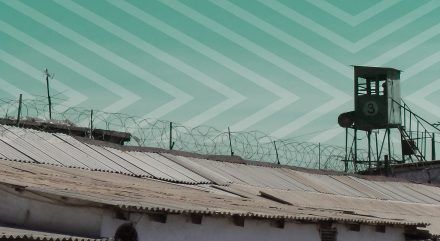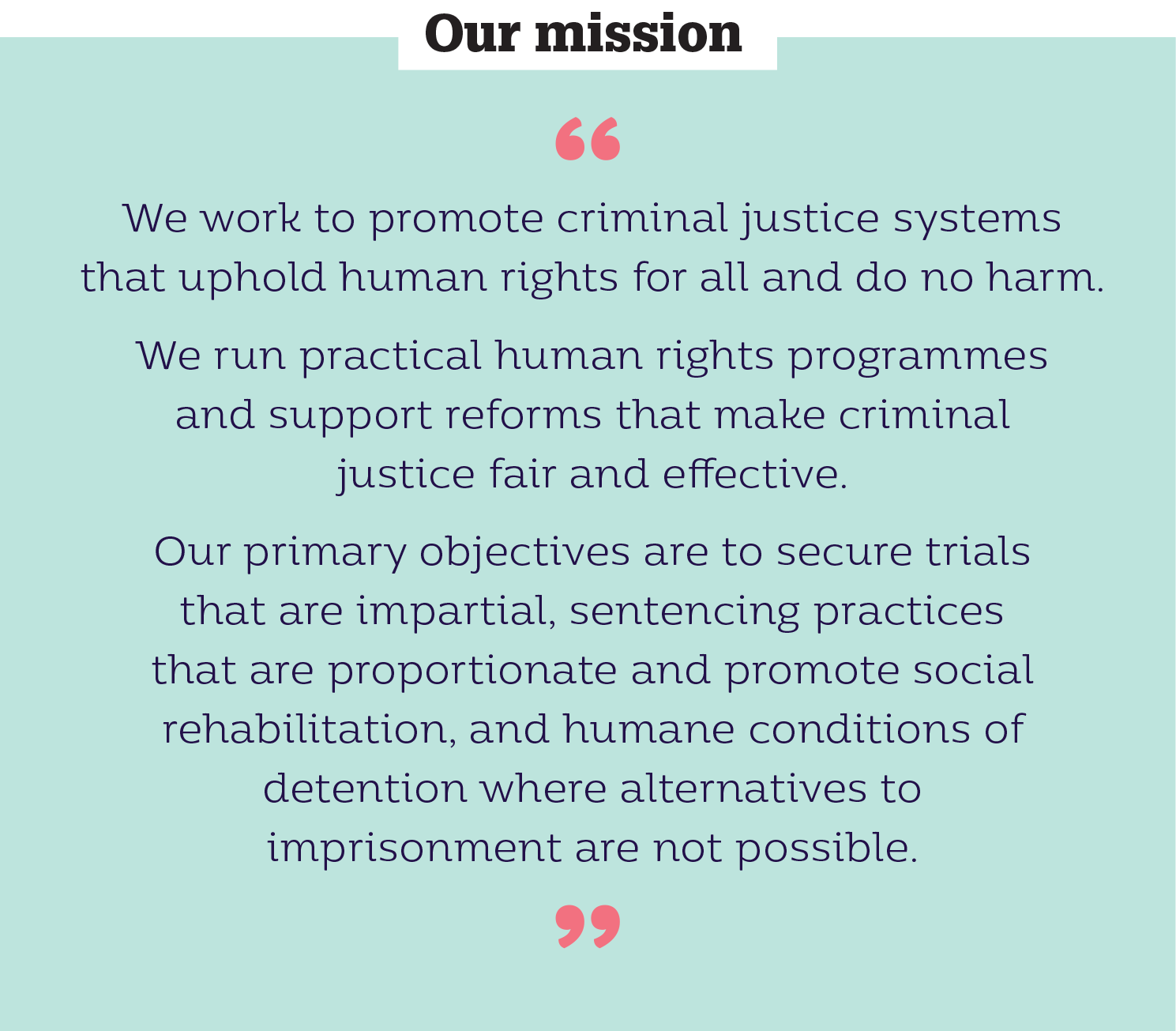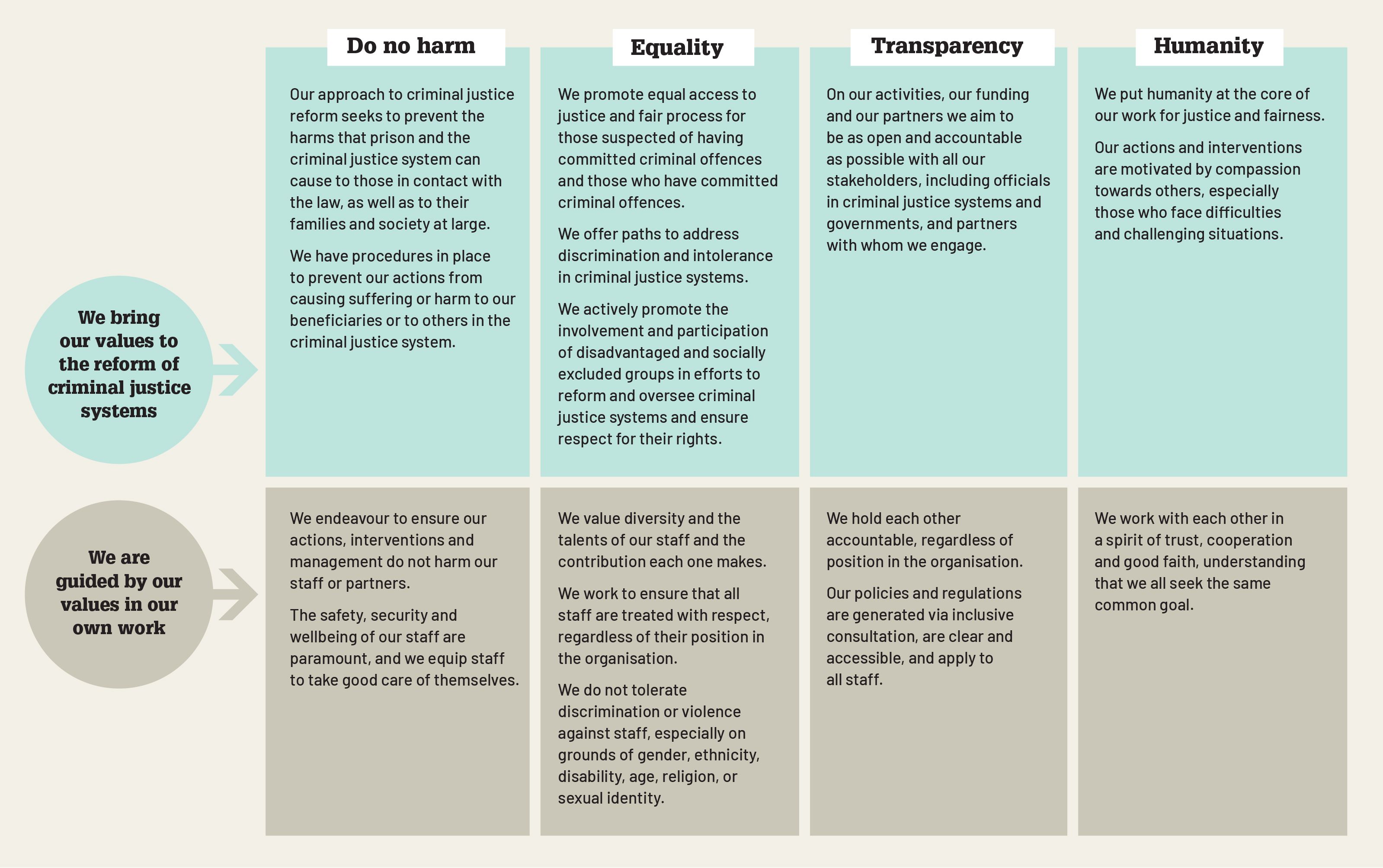Our ambitions for 2020-2023

This year PRI is celebrating 30 years of accomplishments in developing and promoting fair and effective criminal justice systems across the world. Today, we set our trajectory for the coming decade, launching our new strategy for 2020-2023.
The decade we are entering will determine whether the world is able to sustain and promote human rights, basic humanity, and international law. Criminal law, due process and detention practices play core, even emblematic, roles in human rights protection and the effectiveness of criminal justice systems. Conditions in prisons are therefore indicators of the status of human rights in any country. Thus, in the coming decade, we will play a key role in the renewal of global human rights, reinforcing the foundations of the rule of law and good governance.
Drawing on the Sustainable Development Goals (SDGs), our work highlights the importance of fair and effective criminal justice systems in building a sustainable planet and fostering democracy based on international human rights standards. By their nature, criminal justice systems and places of detention leave people behind, exacerbating societal inequalities. Echoing the UN SDGs, our 2020-2023 strategy aims to leave no person behind.
We envision safe societies worldwide in which fair and effective criminal justice systems are non-discriminatory and protect the rights of disadvantaged people.

All persons in contact with the criminal justice system are vulnerable because they are subject to the power of the state, on whom they depend to meet their needs and protect their human rights. Many systems continue to be designed for a homogeneous population and are discriminatory. They too often ignore needs and vulnerabilities stemming from differences of circumstance or identity, factors which can exacerbate vulnerability. That is why in 2020 to 2023 we are putting people in criminal justice systems at the heart of our work, with a special focus on women, children and young adults and foreign nationals and people without proof of identity .
After 30 years of work in over 130 countries and through the publication of the Global Prison Trends, we have become experts in a number of areas of criminal justice. Over the next four years we want to focus on key and emerging trends which are growing in importance or have previously been neglected. We will:
- Intensify our work challenging life sentences globally, and pursuing the abolition of the death penalty;
- Start work to ensure protection of persons in detention who are at risk from natural disasters, given that the effects of climate change are likely to increase in frequency and scale;
- Increase awareness of the right to health and the need for healthcare in detention;
- Seek to remove or reform laws that criminalise behaviours deemed anti-social or that are associated with low socio-economic status;
- Deepen our knowledge and develop policy guidance on the use of technology, IT and artificial intelligence.
As an agenda-setting organisation, we take a proactive role with government actors, engaging and assuring them of our agenda by adopting a practical and respectful approach and building trust and long-term collaboration. We will continue to work practically to create fair and effective criminal justice systems, thanks to our presence in across the globe.
Over the past 30 years, we have learned that we believe in more than a set of international human rights standards that guide our work: we believe we must live up to internally and externally. We believe safe societies are built when the rights of all individuals are recognised whatever criminal offence they may have committed; we believe societies grow healthier when sentences are proportionate and their primary purpose is rehabilitation, not retribution.

In designing our new strategy, it became even more apparent that the advancement of human rights cannot be achieved without fair and effective criminal justice and for this PRI will be more indispensable than ever.